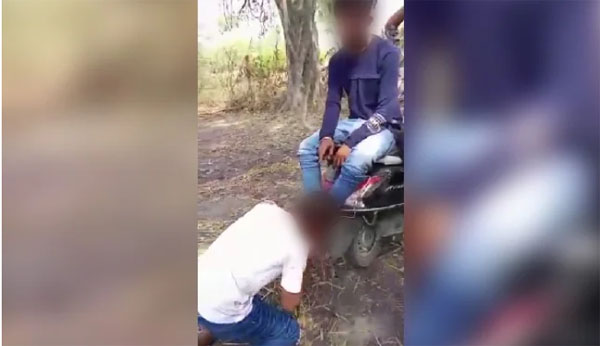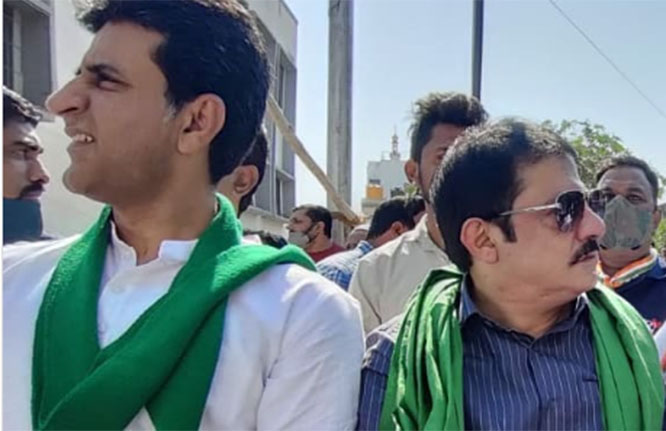
Rae Bareli, Apr 19: Seven persons were arrested after a video—that showed a Class 10 Dalit student being assaulted and made to lick the feet of his peers—went viral on social media.
A 2 min 30-second video viral on social media shows the boy sitting on the ground with his hands on his ears – a sign of punishment. The accused can be sitting on motorcycles, some of them laughing as the victim shakes in fear on the ground. One of the accused asks the victim the spell the name ‘Thakur’ – an upper caste and also abuses him. “Will you make such a mistake again?” another accused asks the victim.
Another video appears to show the men accusing the victim of selling Marijuana, a charge the victim appears to accept under duress.
Following the post on Monday, the district police chief set up five teams to trace the victim and initiate action.
Superintendent of Police, Rae Bareli, Shlok Kumar said that the main accused in the case is a minor and has been sent to a juvenile home, while six others, identified as Abhishek, Vikas Pasi, Mahendra Kumar, Hrithik Singh, Aman Singh and Yash Pratap are majors and were arrested.
The police officer said that the Class 10 Dalit boy was subjected to torture and inhuman treatment because he was not ready to bow down to the extortion call of seniors who were products of the same school.







Comments
Add new comment